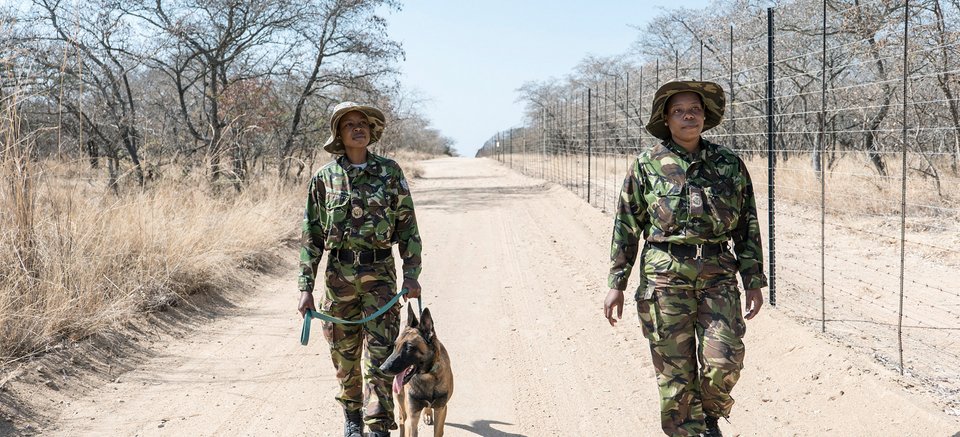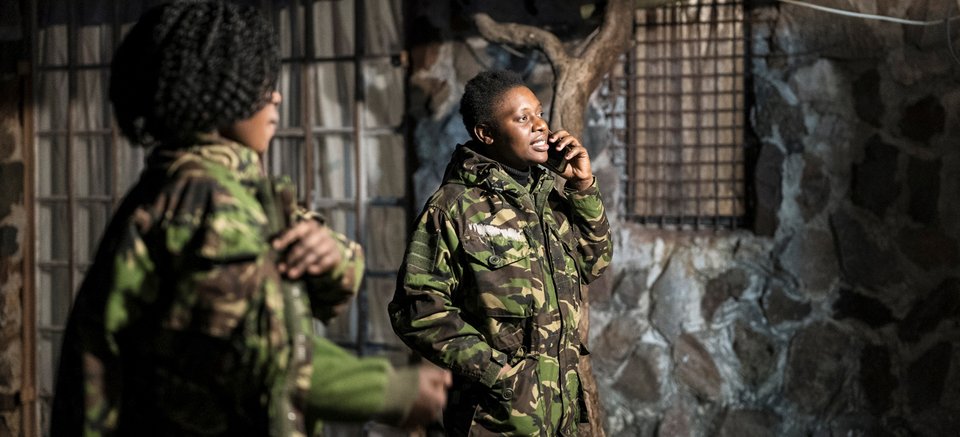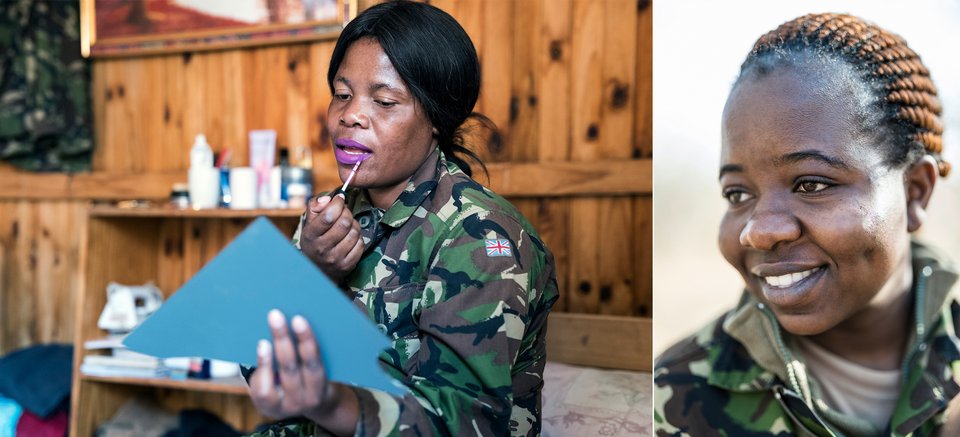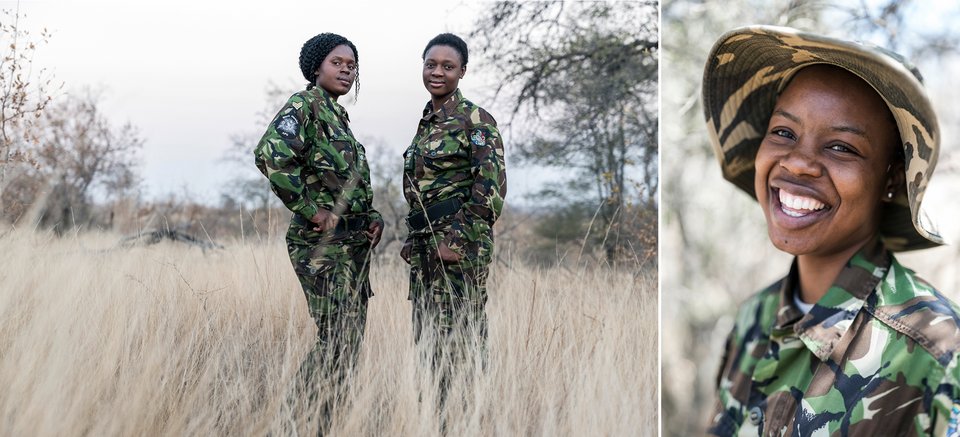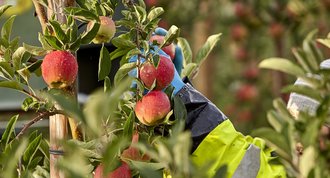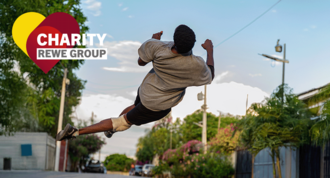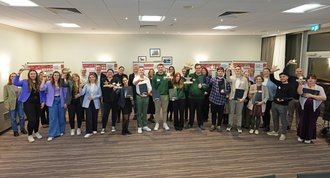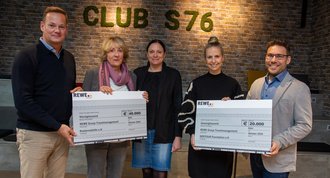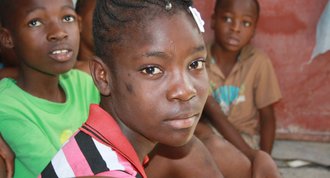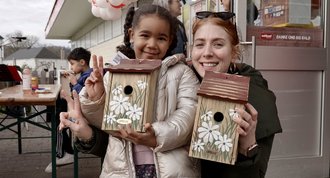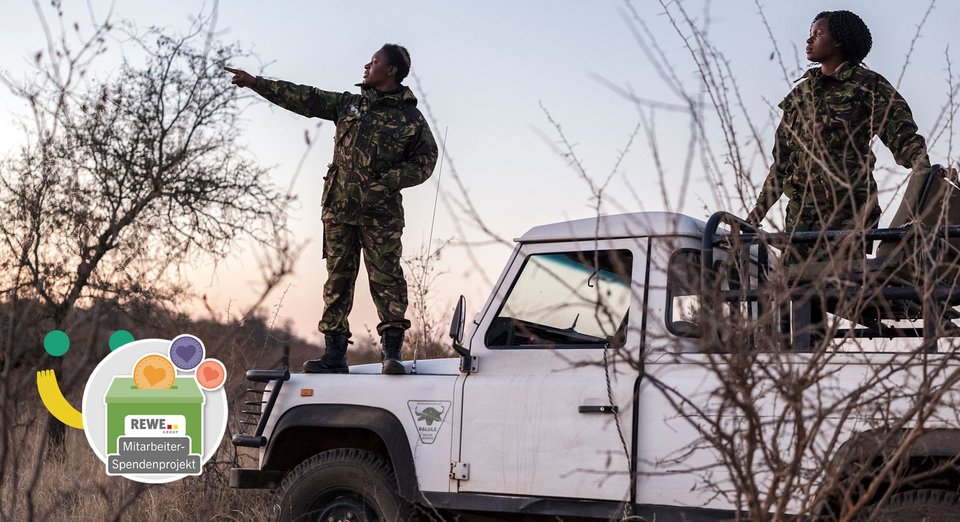
During the pandemic, the all-female Black Mambas ranger team played a doubly important role: they protected the rhinos from poachers and, as the main breadwinners, ensured the livelihood of their families. A representative of the project supported by the REWE Group explains how the women and their children got through this difficult time.
It is estimated that up to 13,000 rhinos live in South Africa's largest game reserve, the Kruger National Park. And nowhere else is there so much poaching. In 2013, the environmental organisation Transfrontier Africa founded the anti-poaching unit "Black Mambas", which is made up of 36 young women from the local tribal communities. They search the protected area for illegal camps, traps or poachers' fireplaces.
The success and importance of the Black Mambas' work is demonstrated by the figures: since 2014, the women have been able to track down and destroy over 1,000 traps and dismantle 29 poaching camps. Overall, poaching caused by setting traps has been reduced by 89 per cent and the illegal trade in rhinos has fallen by 67 per cent.
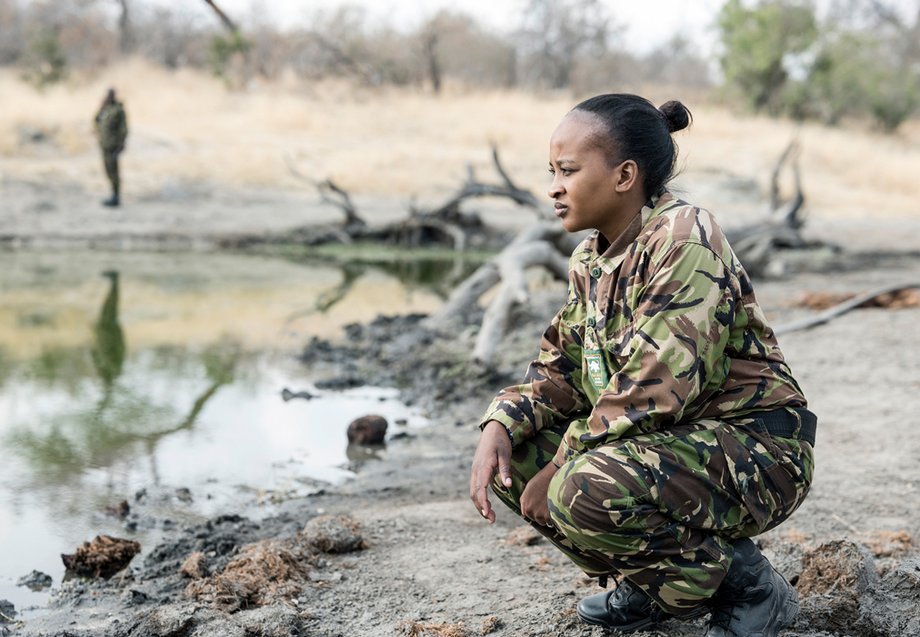 Due to the lack of Travel and Tourism as a result of the global coronavirus pandemic and the resulting lack of income opportunities for people, poaching is currently on the rise again. The rhino population is therefore highly endangered. one asked Transfrontier Africa's press officer, Valeria van der Westhuizen, how the situation is affecting the black mambas.
Due to the lack of Travel and Tourism as a result of the global coronavirus pandemic and the resulting lack of income opportunities for people, poaching is currently on the rise again. The rhino population is therefore highly endangered. one asked Transfrontier Africa's press officer, Valeria van der Westhuizen, how the situation is affecting the black mambas.
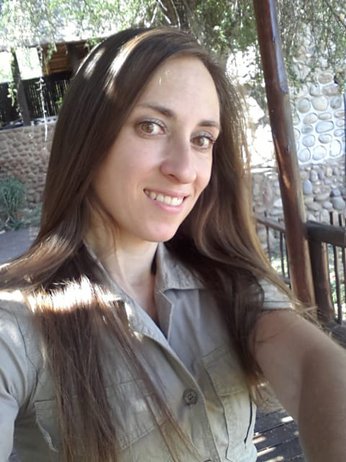 Valeria van der Westhuizen
one: Mrs van der Westhuizen, how has coronavirus affected the Black Mambas' day-to-day work?
Valeria van der Westhuizen
one: Mrs van der Westhuizen, how has coronavirus affected the Black Mambas' day-to-day work?
Valeria van der Westhuizen: The pandemic was a huge burden for our Black Mambas. During the first wave, many of them were unable to return to their families after their multi-day shift, so unfortunately they had to work for more than 52 days without interruption.
This meant that we had to pay a lot of overtime and we are proud to say that we managed to keep all our team members on without any loss of pay. But it was a very difficult time. We also had to expand the patrol areas within the reserve and deploy the Black Mambas to more areas to ensure they were keeping an eye on every inch of the reserve.
one: Why did the pandemic mean more work for the Black Mambas?
Valeria van der Westhuizen: Well, the tourists stopped coming and the reserve was virtually deserted. At the same time, however, the number of people in the communities who had lost work and income during the pandemic and for whom poaching was an alternative increased.
one: How is the pandemic affecting the women themselves?
Valeria van der Westhuizen: You have to realise that many of our Black Mambas are the sole breadwinners of their families. As many people in the communities lost their jobs due to the pandemic, the role of our Black Mambas as the main breadwinners became increasingly important. With the loss of jobs, there were more people to feed and care for at home. It was a huge burden for them to care for a larger household and to know that a family of five or six depended on them. In addition, being away from home for 52 days meant that the Black Mambas did not see their children for 52 days, missed out on important moments in their lives and could not participate in family celebrations such as Easter or birthdays.
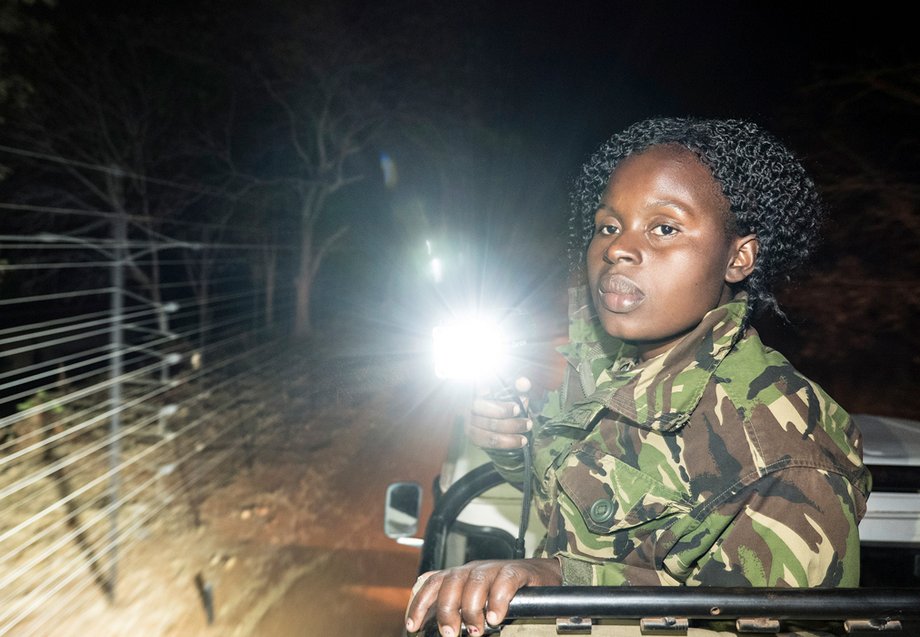 And as already mentioned, the unemployment caused by the pandemic not only led to a loss of income, but also to increased social pressure within the communities. This increased many people's willingness to take risks and poach bushmeat.
And as already mentioned, the unemployment caused by the pandemic not only led to a loss of income, but also to increased social pressure within the communities. This increased many people's willingness to take risks and poach bushmeat.
The children, in turn, were unable to go to school and were at home every day - 24 hours a day. They also did not get their daily meal, which they would normally receive at school. The Bush Babies and the Mambas have remedied this situation.
Since 2014, DER Travel and Tourism Foundation has been working as a non-profit organisation to promote and protect the living conditions of people and ecological habitats in less developed tourist regions.
The worldwide sponsorship projects are implemented by the DER Travel and Tourism Foundation in close cooperation with other local charities, foundations and aid organisations. The donations flow 100 per cent into the sponsored projects, which follow the approach of "helping people to help themselves". So far, 83 projects in 25 countries on five continents have been supported. One of the projects is the Black Mambas project in South Africa.
one: Who or what are the Bush Babies?
Valeria van der Westhuizen: As part of the "Bush Babies Programme", around 870 young people between the ages of 12 and 17 from ten schools around the Kruger National Park are being sensitised to the topics of environmental education and animal welfare. The project aims to teach the young people how to lead a sustainable life and provide for themselves and their families in the long term. The pupils therefore receive lessons once a week in sustainable farming techniques and food security by independently running a vegetable garden.
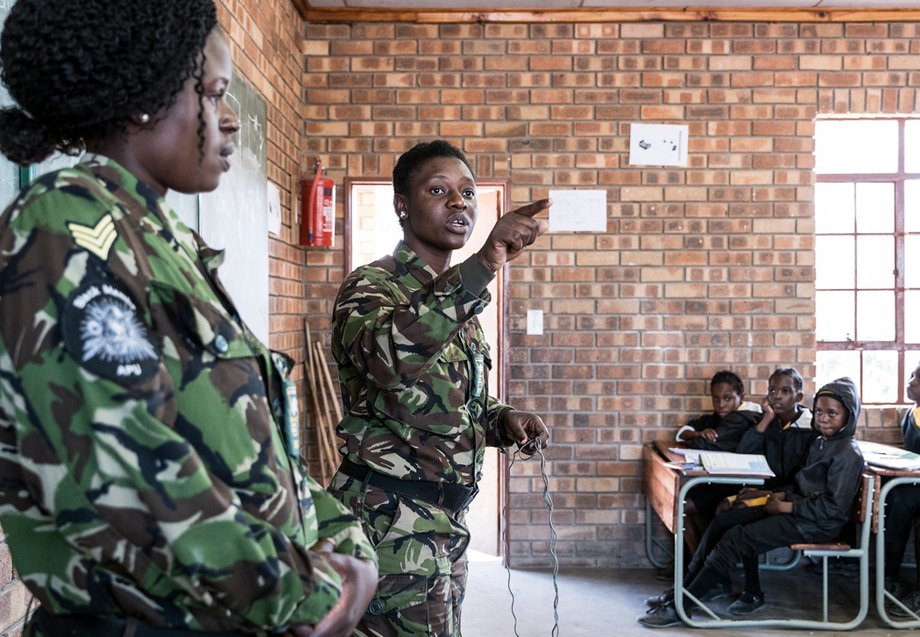 one: How was the work with the children continued?
one: How was the work with the children continued?
Valeria van der Westhuizen: As the schools were closed, our project manager for environmental education for the Bush Babies, Lewyn Maefala, developed a creative concept for teaching the children remotely. We have also built a centre that has outdoor classrooms and large sustainable vegetable gardens in a central location.
one: What is the current situation and mood in the country itself, especially due to the new corona variant?
Valeria van der Westhuizen: The tourism sector is disappointing, as bookings for lodges are still very low and around 30 per cent below the pre-corona level. However, vaccinations are running at full speed, so hardly anyone is worried about their health anymore.
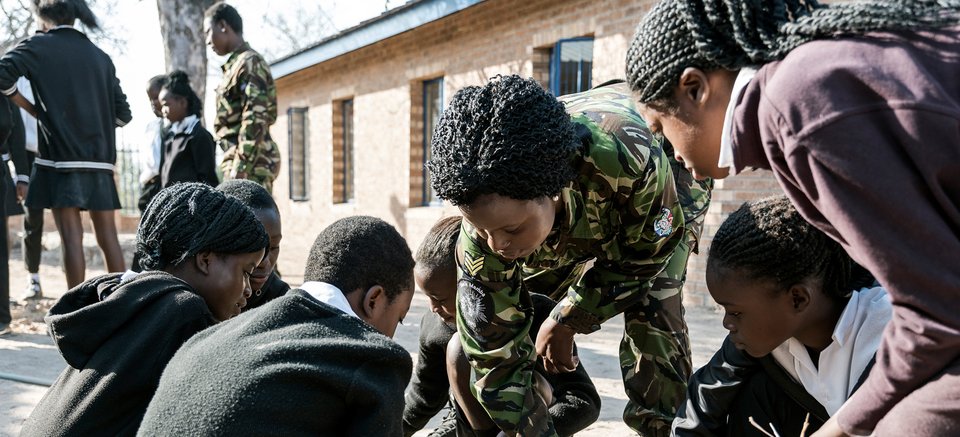
DER Travel and Tourism Foundation e.V. is one of the four recipients of REWE Group's employee donation project. Anyone who would like to support one of the projects with a monthly salary donation of 1, 5 or 10 euros can do so using the donation form. All important questions and answers about the employee donation project can be found here.
You can find out more about the employee donation project in the one_Podcast with project manager Sonja Liedke.

